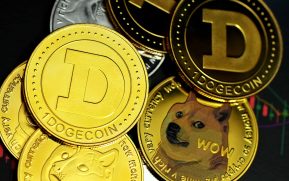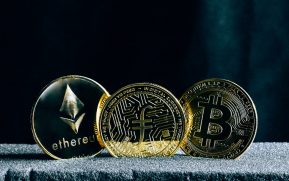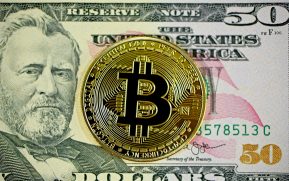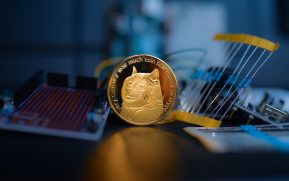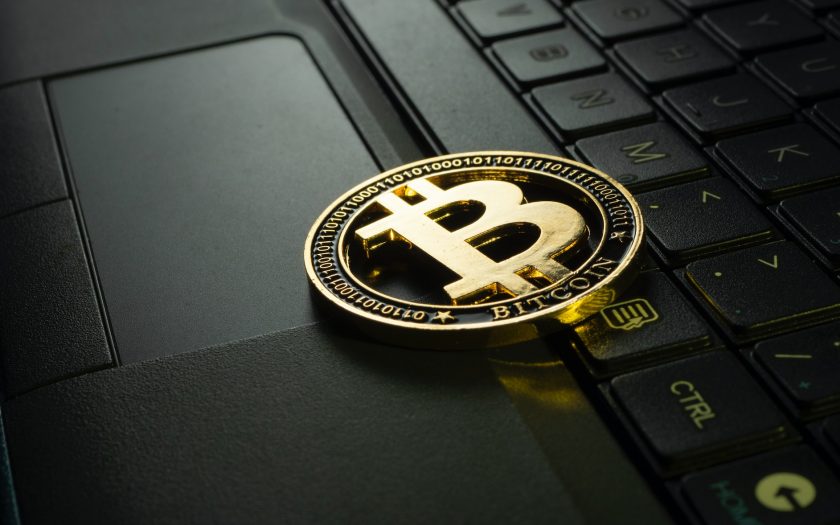
The company’s main service, a crypto payment gateway, enables fast allowance of businesses to accept BTC, ETH, USDT, XRP and over 20 other cryptocurrencies and receive up to over 40 national currencies at the best rates and with no hidden fees.
The company, which counts over 200 employees scattered around the globe, also offers a SAAS solution, a cost-effective opportunity for businesses to start their own cryptocurrency payment solution. CoinsPaid’s customers receive a white-label solution under their own brand out of the box. The company handles all support, and customers can concentrate on their business development.
Another of the company’s services is their “cryptocurrency hot wallet system”, aimed at businesses whose model requires a scalable and secure environment for receiving, storing and sending cryptocurrencies. This is an essential function for crypto exchanges, crypto wallets, payment gateway solutions, merchant services and other businesses with similar requirements. CoinsPaid also offers a business wallet for low-frequency payments via invoice and payment links. The company also has a mass payout feature – suitable for bulk payments to counterparties in cryptocurrency, and an OTC Desk for large trades at the best price.
The Tallinn-based company also features a tool – called CoinsPaid Explorer – that helps businesses monitor all off-chain transactions within the company’s ecosystem with one click and keep their reporting system organised.
I caught up with Max Krupyshev, CoinsPaid’s Ukrainian-born, Berlin-based founder, to learn more about the company and why it’s based in Estonia.
Krupyshev’s story began in the Ukrainian capital, Kyiv, in 2013, when the entrepreneur, who had previously earned a bachelor’s degree in physics, had just received his master’s in business administration and started hearing about the crypto world. “At first, I was like, what is this? But then I kept hearing about it again, and ideas started floating around that maybe we should buy some crypto mining equipment,” he recalls.
Curious about the new technologies and possibilities, he decided to monitor the market carefully with a team of like-minded people and find out which coin was the most profitable. After research, the choice fell on Litecoin. Mining took place on GPU (a graphics processing unit) equipment, while it was cost-effective.
“We started mining and started understanding what cryptocurrency is and why mining is there. And when you start digging those things, you start to understand crypto not on the business level, but on a more technical level,” he says, describing how the process allowed him to understand how cryptocurrencies, blockchain and mining work thoroughly.
After seeing a huge potential, Krupyshev got engaged in the wider popularisation of cryptocurrencies and the development of the idea of blockchain. “Since I had become interested in the topic, I was wondering who else is around?”
Back in 2013, there was almost no media coverage on crypto – no podcasts, videos or articles. The crypto community in Ukraine wasn’t properly organised either – until Krupyshev took matters into his own hands.
He created a meetup in a park and called it Satoshi (the name used by the presumed pseudonymous person or persons who developed bitcoin) Square Kyiv. Similar meetups had taken place in London, where anyone interested in crypto just gathered in the park with a coffee and chat about technology and shared ideas. “We started in the winter, so it was quite cold in the park during our meetups in the beginning,” Krupyshev remarks.
In the beginning, there were about eight interested people. “Not much, but all those people formed the core of the Ukrainian crypto community in the future. We also created a Bitcoin Foundation Ukraine – a social organisation and a brand under which we could do something,” he recalls.
Soon, the word about Kyiv’s entrepreneurial crypto enthusiasts spread abroad, and various event organisers got in touch, tapping into their knowledge and asking for help.
In 2014, crypto began to attract investments, and there were a very few specialists in the segment to advise on it. Krupyshev became one of the opinion leaders, a sought-after speaker at international events and a populariser of cryptocurrency.
Meanwhile, he was hired to work in Cex.io on the mining pool GHash.io – leaders in cloud mining at the time, managing a team of ambitious specialists. “I started professionally working with cryptocurrency – not merely as a startupper – but really employed as a professional. So the full potential of ideas – on how to create a business out of cryptocurrency – started to appear,” he says. “That’s when I got into the idea that we can use cryptocurrency as a payment method in the ecosystem. There can be a myriad of services.”
After Cex.io closed many of the projects within the company, Krupyshev left and was recruited by an international crypto project and relocated to Germany. For three and a half years, he was engaged in various tasks – developing OTC desks, exchanges and wallets. “It was where ideas started to shape right. We understood what the business needs are and who is the clientele that might require the services.”
At the same time, one of his major clients was building a crypto-processing project – CoinsPaid – and Krupyshev was hired as a business developer by the company. The shareholders soon decided to reorganise the business with Krupyshev as its CEO. Same year, CryptoProcessing.com emerged as the payments brand within CoinsPaid.
Over the last four years, CoinsPaid has grown to become the biggest crypto processing company in the world, making one and a half million transactions a month and processing over a billion euros a month. “Which is approximately one transaction every three seconds in different cryptocurrencies,” Krupyshev says.
But he thinks beyond. “Now the task is to expand the ecosystem and to create more synergies between different crypto products,” he states, noting that includes the crypto-related media and the Crypto Academy, an educational portal. “The idea is that you have this ecosystem of products and services that work together while adding value to each other.”
Krupyshev concedes that, at the beginning, there was a fair amount of scepticism about crypto in many political and financial circles. “It was seen as a disruption, and yes, there were a lot of ups and downs, but it’s now absorbed as the new normal,” he states.
“Bitcoin was heavily used for darknet operations. So the governments were split between those who could see the future ahead – and those who saw immediate problems. There were some governments that just said: crypto is illegal. But some said: let’s see if we can regulate it. So we almost immediately started getting some signals that some governments saw it as the new technology and opportunity,” he explains.
“And new technology doesn’t always have a good use immediately, but it might have in the future. So in some countries, the thinking went: if we regulate it correctly now, we will be the country that will have the unicorns in this industry – and they will be hiring people, they will be the taxpayers.”
Krupyshev adds that, as the crypto world gets more regulated, more traditional banks are also starting to come on board with the idea.
The CoinsPaid decided to make Estonia its main base in 2019 for numerous reasons: because it’s in the EU, it offers a digital residency (e-residency) that enables one to run businesses remotely, is open for new technology and solutions and has a clear framework in terms of regulations.
Krupyshev says that, in Estonia, it’s also possible to have a dialogue with the regulators. “Because the nation is small, its regulators still have the time to speak with businesses – to understand the business, ask questions, receive and analyse the answers. Based on this understanding, they may change their minds about some things. It’s a constant dialogue with the regulator.”
He notes that Estonia has already produced up to ten unicorns (a startup valued at least a billion dollars) in a traditional monetary sense and predicts that soon, the country could also be home to crypto unicorns (CoinsPaid is already considered one, he says).
CoinsPaid now employs many people in their legal department to obey the rules to satisfy the requirements of the regulator, but Krupyshev says it costs the company a lot of money, and they could not have afforded them at the beginning back in 2019.
“Founders must be able to focus on making their projects great for solving business needs rather than making the project great for the regulator. You have to allow startups to start making money before imposing strict regulation on them,” he states.
Since Krupyshev is a Ukrainian, I can’t stop myself also asking how he feels about the war. Naturally, he’s worried.
He’s critical of many past European decisions regarding Russian energy and thinks the decisions to rely on Russian fossil fuels were wrong for several reasons.
“First, your whole energetic system should not be dependent on a potentially aggressive state. Such as we witnessed in Transnistria (1992-93); the Chechen wars (1994-1996 and 1999-2009); the Georgian war (2008); Syria (2015 – until now); war in Ukraine since 2014 (and the full-scale invasion in 2022). To everyone in Europe and the US, it was obvious that the Soviet Union was not a very stable place to do business with – and Russia was the biggest part of the former Soviet Union and is its successor state.”
“Second, I think that in 2022, using fossil fuels on the industrial scale is a crime. I mean, as humanity, we didn’t do anything to have those fuels under the ground in the first place – and we don’t have a right to excavate them.”
“So if you think logically, you should not depend on any of them,” he comments.
Together with a group of Ukrainian entrepreneurs, CoinsPaid is helping collect cryptocurrencies to support Ukraine and exchange it into bank accounts in Europe to buy the supplies that are needed: medicine and food for the country’s defence forces. Local NGOs and the Ukrainian government distribute these goods according to the needs across Ukraine.
Krupyshev is both optimistic and realistic about the future of the crypto world.
He estimates that the general market for crypto payments is currently worth three billion a month – and CoinsPaid’s share is about a third of it. “As more young people and businesses are adopting this payment system, the market is growing,” he says, noting the growth is also correlated to the rise of online commerce.
He believes that, down the line, more big brands – such as Amazon and eBay – will adopt crypto payments, and CoinsPaid will have established itself as the leader in the industry.
On the other hand, he estimates that “we’ll have extreme growth as well as see many bloodbaths in the crypto market” – just like in the traditional stock market.
“But in the longer term, I don’t really have doubts about crypto. There are those who say: crypto is done. No, crypto is not done. Crypto will stay and grow.”
CoinsPaid sponsors Estonian World’s Technology section.
Your email address will not be published.
Read Estonian World founders appeal here
and please consider becoming a supporter.
Thank you in advance!
 How To Make Huge Profits In A Short Time With Crypto
How To Make Huge Profits In A Short Time With CryptoGet detailed training system that shows an absolute beginner (without any skill) how to make huge profits in a short time with crypto.
 Crypto + NFT Quick Start Course
Crypto + NFT Quick Start CourseThe #1 course for profit in the Crypto & NFT world - You will discover the secrets that 99% of people don’t know yet

